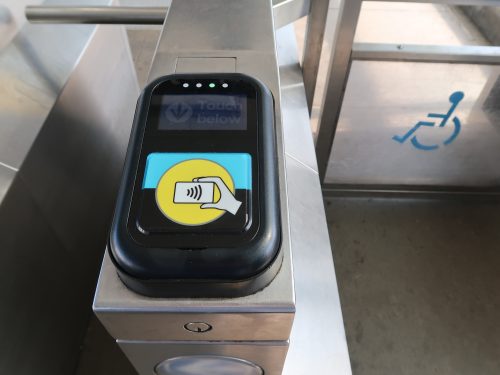In our recent Fair Fares Chicagoland report, we lay out our policy recommendations for more equitable transit in our region. One of our recommendations is fare-capping.
During our research, we interviewed transit riders about their experiences riding transit. A frequent comment we heard from riders was that the $105 fee for 30-day CTA pass is too expensive.
For many people, the high cost meant that buying weekly passes is a common alternative to paying more upfront for the 30-day pass. But, of course, buying weekly passes means people will be spending more over time.
We also encountered many people taking the “pay as you go” approach. Pay as you go has the convenience of requiring significantly less money upfront, but, again, has the disadvantage of costing more over time.
Fare-capping would be a way to solve these problems.
Benefits of fare-capping
Having a fare capping policy means that once a rider using a transit card taps enough times to reach the cost of a daily, weekly, or 30-day pass, they are no longer charged for any additional trips for the duration of the appropriate multi-day pass.
In our Back on the Bus report, we offer fare-capping as a solution to increasing bus ridership. This would prevent transit riders from being penalized for not having enough money to afford $28 for a weekly pass or $105 for a monthly pass.
There is nationwide momentum
Cities around the country and world have implemented fare-capping policies.
- IndyGo, Indianapolis’ transit agency, offers daily and weekly capping.
- The Rapid, the transit agency in Grand Rapids, Michigan, has daily, weekly, and monthly capping.
- San Jose-based Valley Transportation Authority has daily capping.
- St. Louis’s transit smart card has daily capping.
Fare-capping is a clear step to stop penalizing low-income residents for simply not having enough money to pay for a weekly or monthly transit pass upfront.
Putting a policy like this in place would show that we value all transit riders, particularly riders who clearly place value in riding transit regularly.
Want to support the campaign for more equitable transit in Chicagoland? Sign up to become a supporter of Fair Fares Chicagoland!

